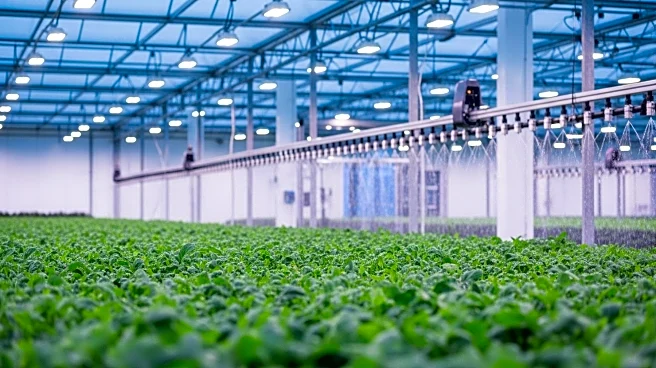What is the story about?
What's Happening?
Indoor farming, often seen as a safer and sustainable method of food production, is facing hidden safety risks according to a report co-authored by Dr. Keith Warriner from the University of Guelph. The report highlights concerns about harmful bacteria such as salmonella and listeria thriving in the controlled conditions of indoor farms. Key hazards include untested germinating seeds and recirculated water, which can harbor pathogens. The report calls for stronger safety standards to address these issues.
Why It's Important?
The findings underscore the need for improved safety protocols in indoor farming, which is crucial for ensuring food safety and public health. As indoor farming grows in popularity due to its sustainability benefits, addressing these risks is vital to prevent potential outbreaks and maintain consumer trust. Enhanced safety standards could lead to increased regulatory scrutiny and changes in industry practices, impacting producers and consumers alike.
What's Next?
Stakeholders in the indoor farming industry may need to adopt new safety measures and technologies to mitigate the risks identified in the report. Regulatory bodies could introduce stricter guidelines, prompting farms to invest in better testing and sanitation processes. Researchers and industry leaders will likely collaborate to develop solutions that balance safety with the benefits of indoor farming.















